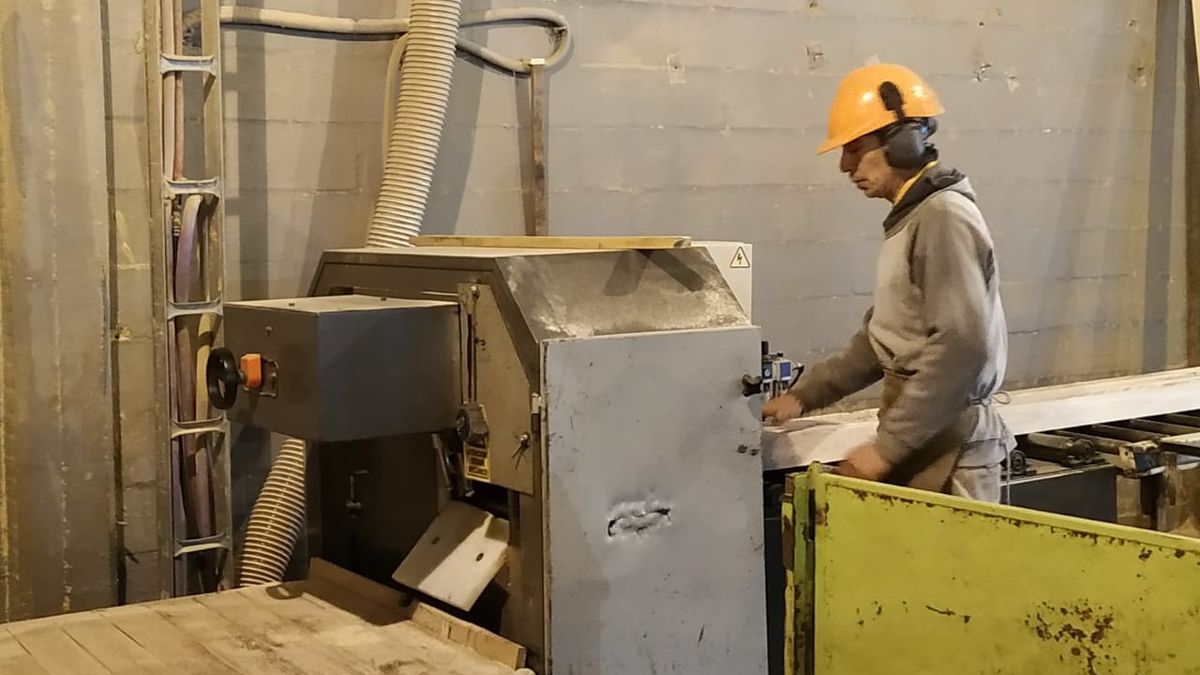Spain is threatened with an absurd scenario: a fugitive from justice who cannot enter the country without immediately being put behind bars wants to be elected head of government in Catalonia on Sunday.
“I’m eagerly waiting for his return,” says Dolors in a firm voice. Carles Puigdemont is the name of the man for whom the pensioner’s political heart beats. And also the hearts of many other people in Catalonia.
Ahead of Sunday’s parliamentary election in the Spanish region, Junts, the party of the separatist leader who fled into exile in Belgium in autumn 2017, is in second place in all polls. The top candidate and former regional president even has hopes of victory. “The time to return has come,” he shouted at the end of the election campaign on Friday evening. “Dear gentlemen in Madrid, prepare yourself. We are coming!” These are not empty words. Even as a runner-up, given the expected constellation, he is likely to have a chance of returning to the Palau de la Generalitat in Barcelona as head of government.
Puigdemont faces arrest
Although moving in wouldn’t be so easy: if he entered Spain, the 61-year-old would be arrested immediately. The reason for the absurd scenario: The trained journalist and father of two girls has allegedly been a fugitive from Spanish justice since the failed attempt to secede and his night-and-dagger escape in the trunk of a car six and a half years ago. It was only at the end of February that the Supreme Court in Madrid even initiated criminal proceedings against the MEP for terrorism.
The left-wing central government of Prime Minister Pedro Sánchez, for which support for the separatists in parliament in Madrid is vital, has guaranteed an amnesty to all “Catalanistas” who have come into conflict with the law in connection with the independence movement. However, the law, which has been sharply criticized by the conservative opposition, has not yet overcome all parliamentary hurdles. It won’t come into force any time soon. Puigdemont still wants to return home after the election. At the latest when the regional parliament votes on the new head of government. “I’m not afraid of being arrested, but I have to expect it,” he said recently.
“He will restore our honor”
The controversial and supposedly dead candidate held his election campaign events in Argèles-sur-Mer, France, near the border with Catalonia. The community hall, which had a capacity of around 1,500 spectators, could not cope with the influx of supporters. On some days up to 1,500 people had to stay outside. The newspaper “El Mundo” described the gatherings as “messianic pilgrimages”, while the newspaper “ABC” saw a “rebirth of the fugitive president”. Teacher Lucía from Tarragona traveled around 600 kilometers there and back in one day to be there. “He will restore our honor,” she said. She stood in line for an hour and a half for a photo with Puigdemont.
His supporters are fascinated to hear statements from their “President” such as “The time of oppression will soon be over” or “We are at a historical crossroads.” To loud cheers from his supporters, he shouted: “They wanted to put the President of the Generalitat in prison. And now I am here with you, a few weeks before my return, without having to apologize to any Spanish judge. Long live free Catalonia!”
Puigdemont has many supporters in Catalonia
Under Puigdemont’s aegis, Catalonia was plunged into chaos after an illegal independence referendum and a subsequent decision to secede from Spain in 2017. The conservative central government at the time placed the region under compulsory administration. Puigdemont fled with other government members. Several of the comrades-in-arms who remained in the country were sentenced to prison terms of up to 13 years, but have since been pardoned. The region is still suffering from the consequences of the attempted separation – including political instability as well as corporate and capital flight.
Puigdemont still has many supporters in Catalonia. Many live, especially in the Girona region with the provincial capital of the same name – a real separatist stronghold where Dolors’ family is at home. The pensioner tends to vote on the left, but she thinks highly of the conservative-liberal politician. “Puigdemont made our cause known around the world.” In the community of 100,000, everyone apart from the many tourists speaks Catalan, even when spoken to in Spanish.
“It’s about the right to self-determination”
It’s about the survival of the Catalan language and culture, says Dolors. “We don’t like it when something is forced on us from outside,” she tells the German Press Agency. “When I’m in Germany, I also have to speak German.” Granddaughter Lola is not allowed to vote yet, but shares her grandmother’s enthusiasm for this cause. “Catalonia is not part of Spain, not here,” she says, tapping her hand over her heart.
If you ask people on the street in Girona and the neighboring municipality of Figueres, you will usually hear similar sentences. “We are Catalonia and have nothing in common with Spain,” claims pensioner Jordi. Architecture student Marc and his friend Laia say in unison: “It’s about the right to self-determination.” “We want to decide for ourselves how we want to live.” In Barcelona, however, opinions tend to differ.
Office of regional president for the separatists?
But how likely is it that Puigdemont will come to power? According to the polls, Sánchez’s Socialist Party with its leading candidate Salvador Illa will win with around 40 MPs, but will clearly miss the absolute majority of 68 seats. At the same time, however, it is questionable whether the various separatist parties together will reach this number. And it is also unclear whether the separatist Republican Left (ERC) of the pragmatic regional president Pere Aragonès, which threatens to fall into third place, will rather support Illa or Puigdemont.
Meanwhile, there are rumors in Madrid that Sánchez might instruct Illa to give up the office of regional president in favor of the separatists, even if she wins clearly, in order to keep them happy. The influential conservative regional president of the Madrid region, Isabel Díaz Ayuso, also believes this. She accuses Sánchez and Illa of leaving Catalonia “to the bandits, totalitarians and corrupts.”
Sánchez’s appeasement policy scares many, but brings joy to others. Junts spokesman Josep Rius predicted in a radio interview this week that the socialist will allow the referendum on Catalan independence demanded by the separatists. “Sánchez still denies this, but he has rejected the amnesty for a long time.”
Source: Stern
I have been working in the news industry for over 6 years, first as a reporter and now as an editor. I have covered politics extensively, and my work has appeared in major newspapers and online news outlets around the world. In addition to my writing, I also contribute regularly to 24 Hours World.




